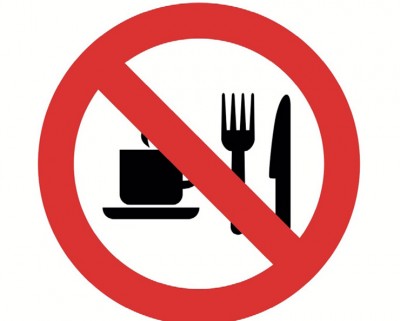
The Shulchan Aruch rules that generally speaking, pregnant women must fast on Yom Kippur, and under ordinary circumstances, they are not permitted even to drink. It doesn’t take much calculation to realize that as pregnancy spans a period of nine months, most people’s mothers were pregnant with them during the month of Tishri, on Yom Kippur, and yet they were born healthy even though the mother fasted. Barring exceptional circumstances, pregnant women are generally able to go one day without eating or drinking, and there is thus little room to allow a pregnant woman to eat or drink on Yom Kippur. A pregnant woman may eat or drink only if there is some concern for her wellbeing or that of the fetus, such as if there is bleeding, or other complications. It should be noted that many physicians will warn against fasting to protect themselves from accusations of offering medically unsound advice, and not because there is a genuine risk. Pregnant women must therefore ensure to get a reliable evaluation to determine whether there is a risk involved in fasting on Yom Kippur. It should also be mentioned that it is preferable to stay home and fast than to go to the synagogue and wear oneself down. If a pregnant woman fears she might have to break her fast if she expends the physical energy involved in attending the services in the synagogue, it is far preferable for her to remain at home and pray there in order to be able to complete the fast. Chacham Bension Abba Shaul rules that when a pregnant woman is required to drink on Yom Kippur, she should place something into the water to make it bitter-tasting, and that way she can drink normally, as much as she feels she needs. If this is not possible, then she must drink in Shiurim (small installments). Chacham Bension further notes that if a woman suffers from iron deficiency, and her hemoglobin count is seven, then she should eat, but in small installments. If her count is six or less, this is considered a dangerous situation and she may therefore eat and drink without restriction. If her count is above seven, and the doctors instruct her to take pills, then she may take the pills on Yom Kippur, though before Yom Kippur she should put the pill in her mouth to ensure it has no flavor. If a pregnant woman smelled food on Yom Kippur and feels a craving for food, she should be reminded that it is Yom Kippur, and that in reward for abstaining from food she will be blessed with a G-d-fearing child. If this does not eliminate her craving, then she should be given a small taste of the liquid of the food. If this does not help, then she should be fed more of the liquid, and if even this does not help, she should be given small quantities of the food itself. In all circumstances, if her face begins changing colors, this should be taken as a sign of potential danger and she should be fed without any questions being asked. A woman in labor on Yom Kippur should eat and drink as much as she needs. A woman is considered to be "in labor" for the purposes of this Halacha once bleeding occurs or she cannot walk on her own.
By Rabbi Eli Mansour
Must Pregnant Women Fast on Yom Kippur?
Typography
- Smaller Small Medium Big Bigger
- Default Helvetica Segoe Georgia Times
- Reading Mode




